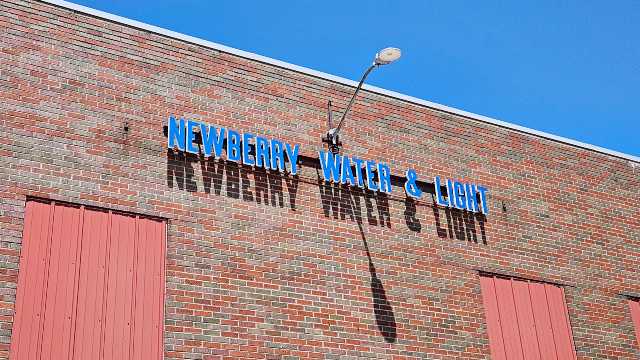By Sterling McGinn
When the Newberry Village Council notified residents of a special meeting and public hearing regarding a grant application for water system upgrades last week, many residents were shocked to see a proposed $40 increase to their monthly water bill.
But that may be unnecessary—the $40 increase would be a worst-case-scenario if the Village of Newberry were required to solely fund the needed water system upgrades with loans and no loan forgiveness.
The board held a public hearing and special session on the matter on Tuesday, May 23 at 6 p.m. in the Water and Light building.
The village is applying for funds from Federal COVID funds for the estimated $10.5 million project to upgrade aged and failing water system infrastructure within the village.
The grant funding is through the State of Michigan Drinking Water Revolving Fund. Many municipalities across the state are competing for these funds.
Some of the work outlined in the proposed projects include upgrades, repairs, rehabilitation, and replacement of the existing water main system including water mains, hydrants, valves, and service lines.
The final project plan must be submitted to Environment, Great Lakes, and Energy (EGLE) by June 1 of this year in order to be considered for funding.
The village is working with U.P. Engineers and Architects, who are assisting the board with the funding application process. Kevin Nancarrow from U.P. Engineers attended to present the project and answer questions from the board and public.
“We asked for grant money last year, and we didn’t get funded for drinking water,” said Village Manager Allison Watkins. “We increased our project plan to see if they will fund something. This is how we access the COVID funds that came from the Federal Government—the $4 billion that was given for infrastructure is being filtered through the State of Michigan’s State Revolving Fund program.”
If grant money is not obtained, and the village is required to take out $10.5 million in loans, an increase of $40 per residence a month would be required. “I think we would all agree, [the increase] is not feasible,” Watkins said.
By law, the village has to notify the public of the highest rate that could result if only loans are used.
The loan financing would be through the State of Michigan Revolving Fund and the loan would be for 30 years at 2.125 percent with monthly payments costs totaling $40,000 per month. That amount would be spread out among the 1,030 Equivalent Dwelling Units resulting in the increase of approximately $40 per month per single family residential users.
That cost does not include potential grant or principal forgiveness that may be provided by the State of Michigan.
One of the other needed upgrades would be the replacement of the 100,000-gallon orange Newberry water tower, which was erected in 1937, and has reached its life expectancy. The current tank is undersized, which only allows for a day of use.
Newberry’s average daily water usage is 250,000 gallons. A new water tower with an increased tank size would allow storage of equal to one day’s use of water.
Old water mains are also an issue that needs to be addressed.
The village’s water system is comprised of 76,887 feet of watermain, and many of the mains in the system have been upgraded. However, there is approximately one mile of the system that contain original sandcast iron pipes, which are also undersized.
The use of the original type of mains with no cement linings has resulted in a high presence of iron bacteria in Newberry’s system, which causes the discoloration. The installation of new ductile iron water mains would improve the issues and reduce leakage.
This project will also address the unfunded, state-mandated lead/galvanized service line replacement, which must be completed in the next 20 years. The village is legally required to remove and replace lead/galvanized service lines in conjunction with the water main removal and replacements.
Service lines from the home to the curb stop needs to be replaced with copper lines or they have to be replaced if they have been connected to lead at any point. The village is required to submit an inventory of service lines in the village by 2025.
This mandate came after the Flint water crisis, after corrosive water was found in their system.
During the public comment section, Newberry resident Michelle Huffman asked if the proposed improvements would fix the water issues in the village.
“I am raising my grandchildren—I want them to have nice water—I don’t want to have to buy filtered water or bottled water all of the time,” she said.
Watkins and Nancarrow said that the water would be cleaned up once the old mains are replaced.
Huffman also asked what members of the community could do to help secure the needed funding.
“You can contact Senator McBroom’s office, he is our State Senator,” Watkins said. “He is very receptive, and he responds to his own emails.”
During the special meeting following the public hearing, the board voted to adopt the final project plan to be submitted to EGLE for the water system improvements.
The village is not committing to accepting any money or increasing water rates at this time.
“Part of the reason that we have had difficulty in receiving money for these projects is that there are a lot of communities in the state that are in worse shape than us,” explained Village President Catherine Freese. “I know for some people, that is hard to hear. I just want to reiterate that rates are not going up.”
Once the application is reviewed, the village will be informed of the amount, if any, that would be awarded.
The village expects to be notified sometime this fall.







